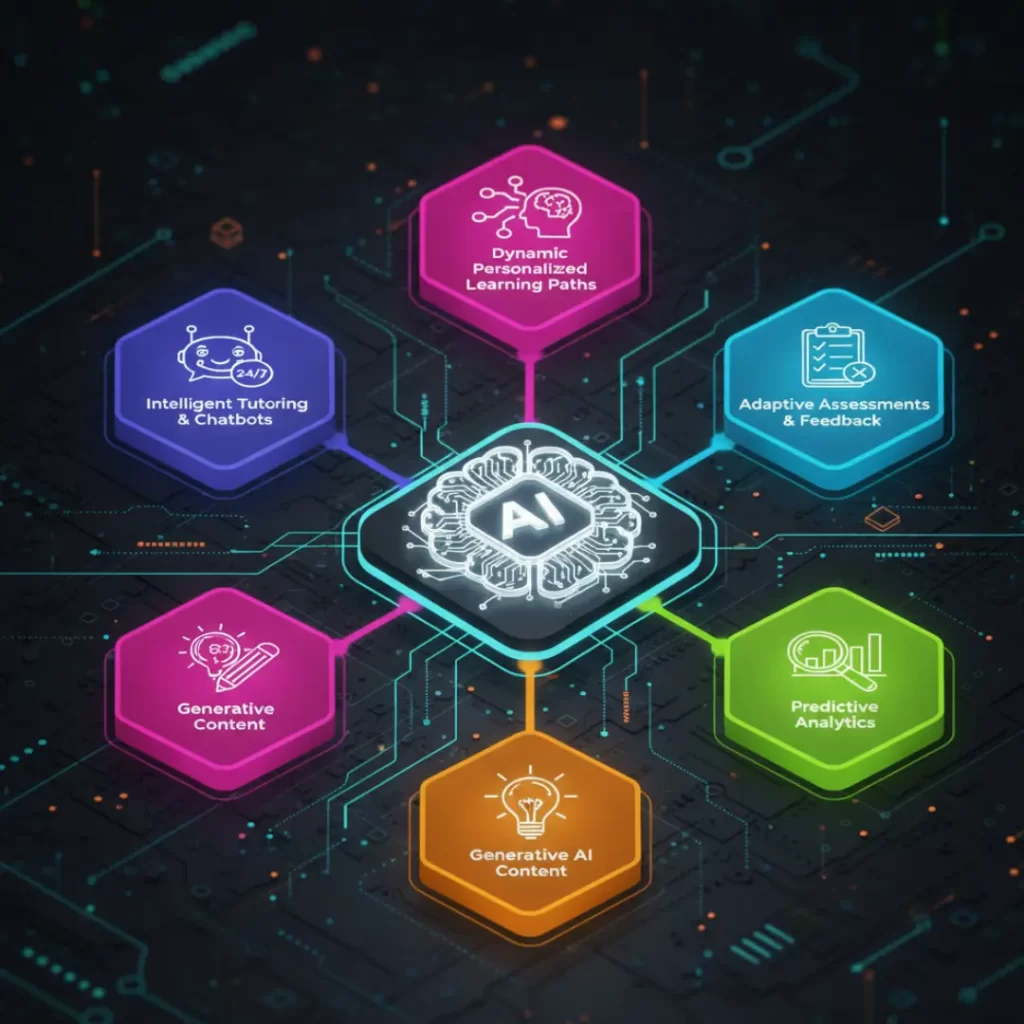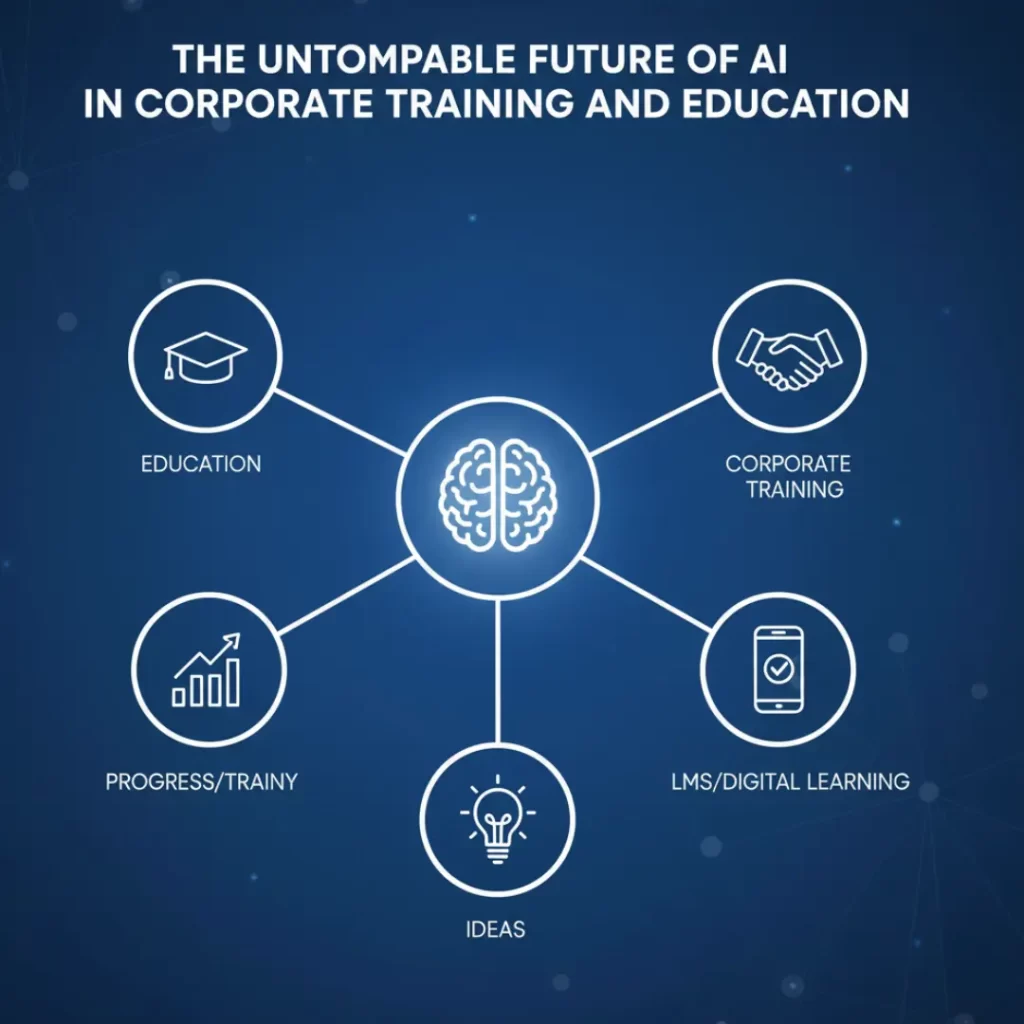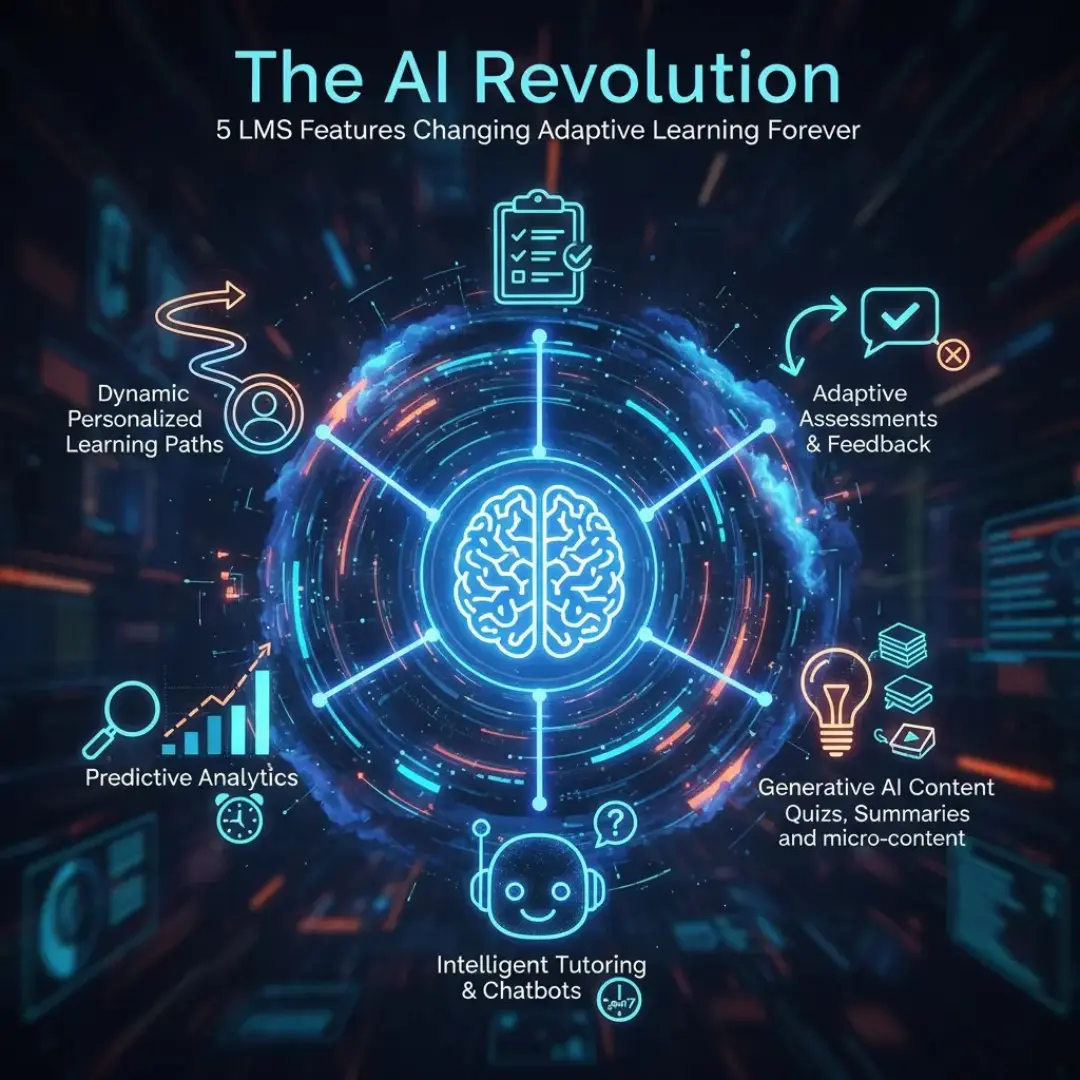LMS Features: Getting Ready for the Revolution in Adaptive Learning
The landscape of Learning and Development (L&D) is transforming rapidly, driven by powerful LMS features that use artificial intelligence to personalize and enhance the learning experience. For years, organizations have imagined the possibility of truly adaptive, tailored training programs—but today, that vision is finally becoming reality.
Traditional Learning Management Systems served their purpose, but they often came with rigid, one-size-fits-all learning paths. These outdated models limited engagement and knowledge retention, often leading to low completion rates and disappointing ROI from corporate training programs.
Now, the arrival of AI-powered LMS features has completely reshaped the game. Integrating artificial intelligence (AI) and machine learning (ML) into modern LMS platforms doesn’t just improve efficiency—it redefines how learning happens.
In this blog, we’ll explore the five key LMS features powered by AI personalization that are transforming adaptive learning and helping learners worldwide gain skills faster and more effectively.
The Core 5: AI-Powered LMS Features Driving Adaptive Learning

The most advanced LMS platforms are now integrating deep learning models and sophisticated algorithms to move beyond simple course delivery.
These five features represent the cutting edge of e-learning technology.
1. Dynamic Personalized Learning Paths & Intelligent Recommendations
The days of mandatory course catalogs are fading. This feature is the most important part of AI-powered personalization and is also very important for adaptive learning to work.
- Real-Time Data Analysis: The LMS uses AI to constantly analyze a learner’s profile, including their job role, past performance data, learning pace, engagement patterns, and stated career goals.
- Creating Custom Journeys: AI algorithms automatically create a unique path of modules, courses, and resources, skipping over things the learner has already learned and focusing on areas where they need to learn more.
- Intelligent Content Recommendations: The LMS suggests the next best learning activity, like a specific video, a microlearning module, or a peer-to-peer discussion, to keep the learner interested and moving toward their professional goals.
This dynamic approach ensures that every moment spent in the LMS is optimized, significantly increasing knowledge retention and learner motivation by making the experience entirely relevant.
2. Adaptive Assessments and Real-Time, Targeted Feedback
Traditional assessments have always been fairly straightforward, but adaptive assessments offer a smarter, more tailored approach. They adjust to the learner’s progress, providing a more personalized experience that saves time while offering a better way to measure what’s truly understood.
Adapting to Difficulty: As a learner works through questions, the system automatically adjusts. If they get several tough questions right, it will skip the easier ones, allowing them to focus on more challenging material. If they struggle, the system will introduce simpler questions and relevant content to help them improve.
Real-Time Feedback: Rather than just marking an answer as wrong, the system provides immediate feedback. It explains where things went wrong and directs the learner to the section of the material they need to revisit, ensuring that learning continues right away.
A Fuller Picture of Skills: These assessments go beyond the usual multiple-choice format. They might include simulations and performance tasks, with the system evaluating answers in more complex ways. This leads to a more complete picture of the learner’s strengths and areas for improvement.
3. Predictive Analytics for Proactive Intervention
One of the most powerful applications of AI is its ability to forecast the future. Predictive analytics allow L&D teams to be proactive, not reactive.
- Identifying At-Risk Learners: AI analyzes behavioral data (e.g., time spent on modules, number of failed attempts, time since last login) to flag learners who are likely to struggle, fail to complete a course, or drop out.
- Proactive Intervention Triggers: The LMS can automatically trigger targeted interventions, such as sending a personalized reminder email, suggesting a quick review module, or notifying an instructor or mentor.
- Pinpointing Skill Gaps: AI can look at a team or organizational level to detect systemic skill gaps, recommending curriculum adjustments or targeted training investments needed to meet future business objectives.
4. Generative AI for Automated Content Creation & Curation
For years, one of the biggest challenges in corporate learning has been keeping training material fresh, engaging, and relevant. Producing high-quality content takes time — often more time than teams can spare. Generative AI is helping to change that by streamlining how learning materials are created and updated.
Faster Content Development:
Modern learning platforms equipped with generative AI tools can turn everyday resources—like meeting notes, policy updates, or slide decks—into structured learning content in minutes. These tools can help build everything from quick self-check quizzes and microlearning modules to concise course summaries that reinforce key ideas without overloading learners.
Smarter Curation of Learning Resources:
Instead of manually sorting through piles of old documents and external links, AI can continuously scan and organize both internal and external content libraries. It automatically identifies, tags, and recommends the most current and useful materials—whether they’re articles, videos, or podcasts—so that learners always have access to relevant, up-to-date information.
Efficient Multilingual Adaptation:
When organizations train global teams, translation often slows things down. AI-powered localization tools now make it possible to adapt learning content into multiple languages while keeping tone and cultural context intact. This not only reduces translation costs but also ensures that every learner, no matter where they are, gets a learning experience that feels personal and authentic.
5. Intelligent Tutoring and Conversational AI Chatbots
For learners, getting help shouldn’t mean waiting hours for an instructor response. Intelligent tutoring systems provide immediate, human-like assistance.
- 24/7 On-Demand Support: Conversational AI chatbots are embedded within the LMS to answer frequently asked questions, clarify complex concepts, and guide learners through technical issues—all in natural, conversational language.
- Context-Aware Guidance: Unlike simple bots, these AI tutors understand the learner’s place in the course, providing context-specific guidance (e.g., “Based on your last quiz score, I recommend reviewing the ‘Budgeting Strategies’ section of Module 3”).
- Role-Playing and Simulation: More advanced systems use AI to facilitate interactive simulations and role-playing scenarios, providing objective feedback on soft skills like communication, sales techniques, or leadership responses.
The Unstoppable Future of AI in Corporate Training and Education

The convergence of these five AI-powered LMS features signals a definitive end to the ineffective, passive learning models of the past. The goal of adaptive learning—a truly personalized, efficient, and outcome-driven journey for every user—is now an accessible reality.
The benefits for organizations adopting this new wave of e-learning technology are profound:
- Maximized Engagement and Retention: When training is relevant and personalized, engagement soars, with many platforms reporting completion rates up to 50% higher.
- Quantifiable ROI and Efficiency: By identifying skill gaps faster and focusing content only where needed, AI-powered personalization significantly reduces training time and associated costs.
- Future-Proofing the Workforce: With the help of predictive analytics, L&D teams can stay ahead of the curve by identifying the skills employees will need in the near future—not just the ones required today. This ensures that the workforce keeps growing with the company’s goals and the industry’s direction.
The AI-powered LMS is no longer a luxury; it is the essential platform for any organization serious about continuous learning, skill development, and maintaining a competitive edge in a rapidly changing world. Embrace these features, and you embrace the future of learning.
Explainer Video Animation : https://graveiens.com/blog/explainer-video-animation-engage-schools-with-digital-content/
Frequently Asked Questions about AI-Powered LMS Features
AI-powered LMS features personalize learning by adapting content based on learner progress, improving engagement, retention, and training outcomes through adaptive learning and machine learning technologies.
Traditional LMS often follow a rigid, one-size-fits-all structure, limiting engagement and knowledge retention. AI-powered systems, however, offer dynamic, personalized learning paths that improve results and learner satisfaction.
AI boosts engagement by adjusting content in real-time based on learner performance. This personalized approach keeps the learner motivated and ensures the training is relevant, impactful, and efficient.
Adaptive learning provides tailored experiences for learners, adjusting content to fit their progress, ensuring higher knowledge retention and faster skill acquisition compared to traditional one-size-fits-all methods.
AI-powered LMS platforms identify skill gaps, optimize training efforts, and reduce unnecessary content, leading to faster skill acquisition, improved learner outcomes, and a higher return on investment (ROI) for companies.



Comments 0